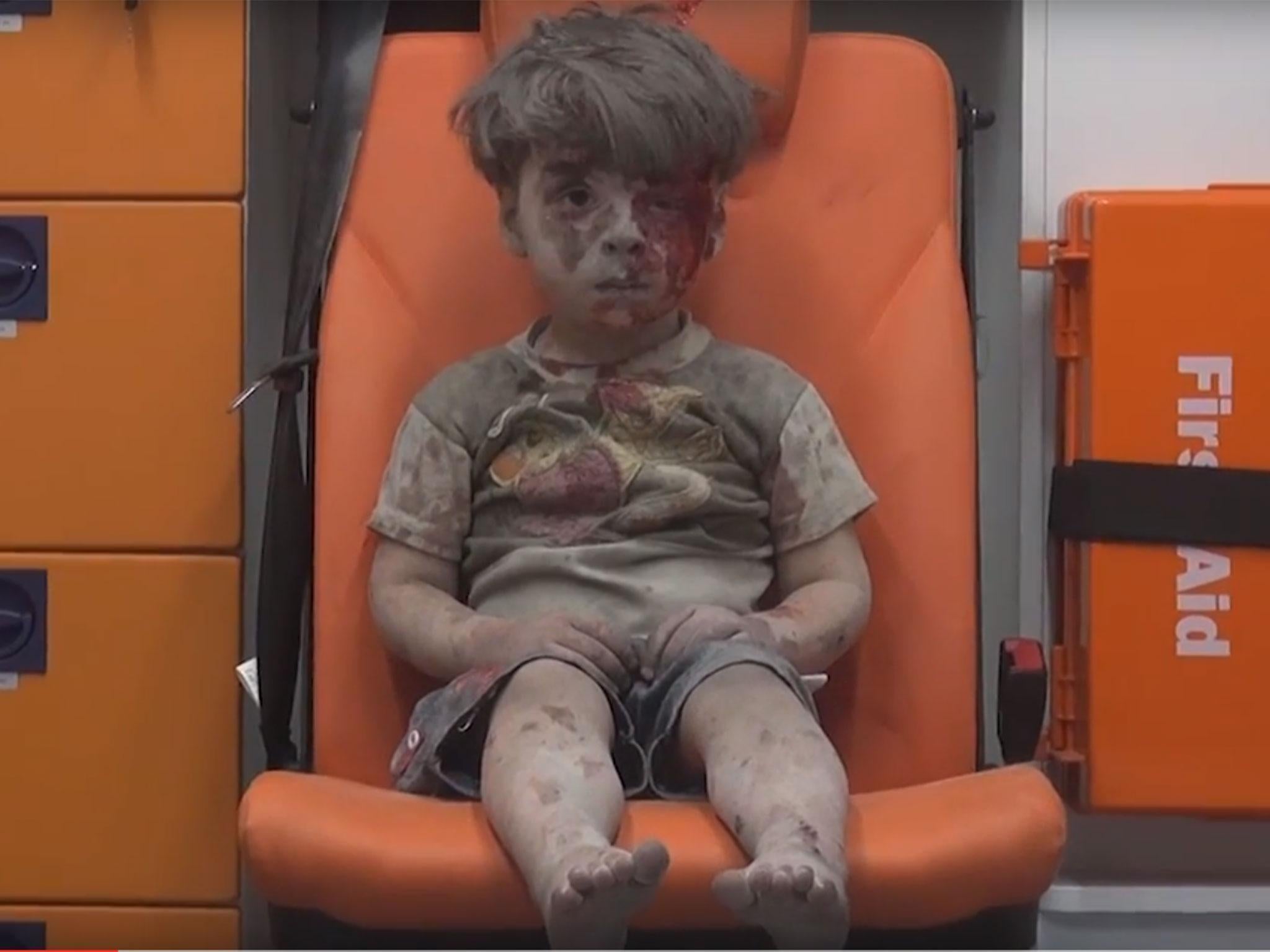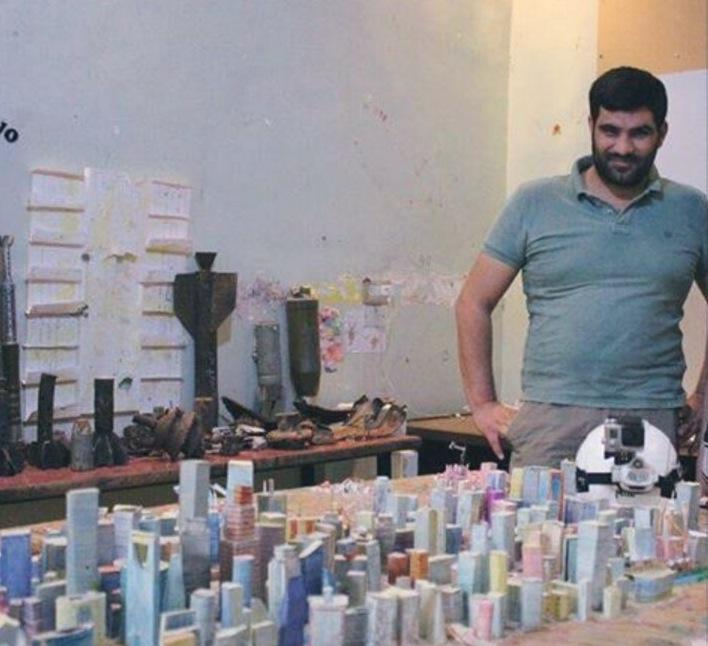‘It is not the Nobel we long for most, but peace itself’: The White Helmets react to missing out on peace prize
The volunteers of the rescue and first responder service estimate they have saved at least 40,000 lives in Syria’s bloody civil war
Your support helps us to tell the story
From reproductive rights to climate change to Big Tech, The Independent is on the ground when the story is developing. Whether it's investigating the financials of Elon Musk's pro-Trump PAC or producing our latest documentary, 'The A Word', which shines a light on the American women fighting for reproductive rights, we know how important it is to parse out the facts from the messaging.
At such a critical moment in US history, we need reporters on the ground. Your donation allows us to keep sending journalists to speak to both sides of the story.
The Independent is trusted by Americans across the entire political spectrum. And unlike many other quality news outlets, we choose not to lock Americans out of our reporting and analysis with paywalls. We believe quality journalism should be available to everyone, paid for by those who can afford it.
Your support makes all the difference.“It is not the Nobel we long for most, but peace itself”, members of the Syria Civil Defence service, also known as the White Helmets, have said in reaction to the news that this year’s Nobel Peace Prize has gone to Colombian President Juan Manuel Santos for ending the country’s 52-year-long civil war.
Pictures from the White Helmets headquarters on the Turkish border after the announcement in Oslo on Friday showed around half a dozen people sitting around computer screens, a couple of them smiling despite their obvious disappointment. “Congratulations to the people and President of Colombia,” a statement in English said. “We sincerely wish them peace.”
The volunteer rescue group, nicknamed for their distinctive safety gear uniform, is made up of around 3,000 people across 114 centres operating in rebel-held areas of Syria. The majority of its funding now comes from Dutch and UK sources.
The White Helmets estimates they have pulled more than 40,000 people from the rubble caused by regime – and later Russian – air strikes since they began as a loosely organised collection of volunteers in 2013. Arresting images and footage of rescues, including that of five-year-old Omran Daqneesh, known as “the boy in the orange ambulance seat,” have resonated around the world. So, too, have pictures of the bodies of entire families found by the White Helmets after hours of searching.
They have paid and continue to pay a price. 110 volunteers have died while carrying out rescues – often because of the so called “double tap”, when warplanes circle back and hit a target again once first responders have arrived. The group said that on Friday, while the winner of the Peace Prize was being announced, volunteer Mahmoud Al Muhammad died in Daraa after responding to a strike that hit civilians leaving Friday prayers.

It is for all of these reasons that they were nominated for the 2016 Nobel Peace Prize, but the volunteers The Independent spoke to were stoic about missing out on the symbolic victory.
Ammar al-Selmo, the head of the White Helmets in East Aleppo, which is currently under siege by President Bashar al-Assad’s forces, spend the evening last night painstakingly recreating the city’s skyline on a table at home using paper models, helped by his daughter. He posted a photo of his handiwork on Facebook at around midnight in which one of the famous White Helmets sits on the table in front of him, and debris and bomb parts from the war are lined up on the wall behind.

“It is not the Nobel Peace Prize what we long the most for, but to stop the killing in Syria/Peace for the Syrians/Rebuilding Syria,” he wrote, along with the hashtags “Assad is killing we rescue” and “Assad destroys we rebuild.
On Friday afternoon, after the announcement that the prize had gone to the Colombian president for his efforts in a recently collapsed peace deal with Farc guerilla rebels, Mr Selmo said nothing would change for the White Helmets’ work.
Another volunteer, Ismail Abdullah, offered his congratulations to Colombia. “We didn’t win, but people know who we are now, they ask, ‘who are these White Helmets, what do they do to get nominated?’” he said. “That is a victory itself, our voice is being heard, and we can use it to tell the world that people in Syria are still dying.”
The White Helmets are not without their detractors: since the announcement of their nomination for the Nobel, many critics have pointed out that volunteers are sometimes current or past rebel fighters, who commit violent acts as well as save lives. Questions over their Western funding have also been raised, although the White Helmets are clear about where their support comes from on their website.
Some Syrians, while praising the White Helmets’ bravery, asked why a nomination couldn’t go to an organisation such as SAMS, a medical charity which works in both regime- and rebel-held areas, thus removing the political connotations.
Commiserations on missing out and continued praise for the White Helmets’ work have been shared widely both in Syria and internationally. “Congrats for the Syrian Civil Defence Service heroes for winning our hearts and losing a stone prize. You are our Nobel Peace Prize heroes,” Mahmoud al-Basha, a journalist based inside East Aleppo, tweeted.
“Their prize is beyond the sky, not in this world. They know what their mission is ‘saving civilian souls,’” one Syrian activist said in a Whatsapp message.
At the same time that the Peace Prize was being announced in Oslo, a civil service defence centre in Hama was hit by an air strike, the White Helmets reported. “Back to work,” a message on Twitter read.

Join our commenting forum
Join thought-provoking conversations, follow other Independent readers and see their replies
Comments